Are you passionate about protecting our planet and seeking a world-class education in environmental studies? Look no further than Asia, a region brimming with leading universities dedicated to tackling environmental challenges. From sustainable energy to climate change, these institutions offer cutting-edge research and innovative programs, shaping future environmental leaders. In this article, we dive into the top 10 Asian universities for environmental studies, exploring their unique strengths, academic excellence, and contributions to a greener future.
University of Tokyo
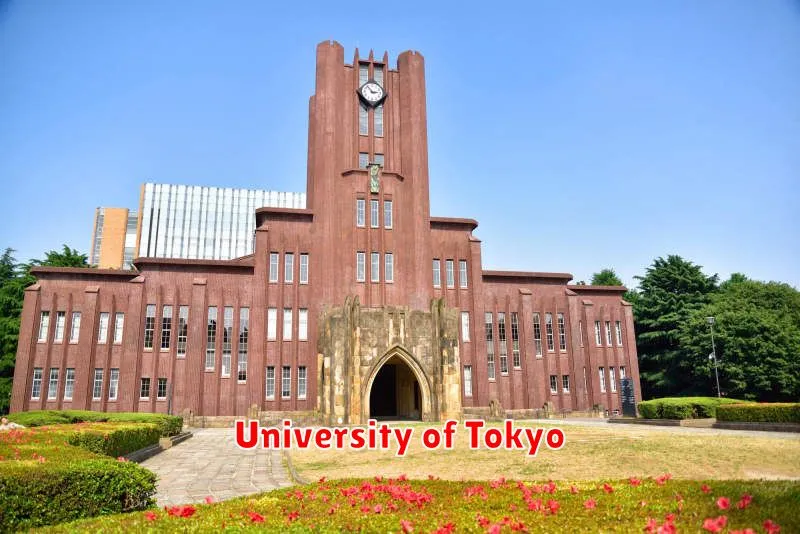
The University of Tokyo, officially the University of Tokyo, is a public research university located in Bunkyo, Tokyo, Japan. Founded in 1877, it is one of the most prestigious and selective universities in Japan and is consistently ranked among the top universities in the world.
The university is composed of ten undergraduate faculties and fifteen graduate schools. It also has numerous research institutes and centers. The university’s main campus is located in the Hongo district of Bunkyo, with additional campuses in Komaba and Kashiwa.
The University of Tokyo has a long and distinguished history. It was founded as the Tokyo Imperial University in 1877, and it was renamed the University of Tokyo in 1949. The university has produced many notable alumni, including numerous Nobel laureates, politicians, and business leaders.
The University of Tokyo is a leading research university, with a strong focus on science and engineering. It is home to some of the world’s leading researchers in a wide range of fields, including physics, chemistry, medicine, and computer science. The university is also known for its strong international ties, with students and faculty from all over the world.
The University of Tokyo is committed to providing a high-quality education to its students. It offers a wide range of undergraduate and graduate programs, as well as opportunities for research and international exchange. The university is also committed to contributing to society through its research and educational activities.
If you are looking for a world-class education, the University of Tokyo is a great option. It is a highly selective university, so it is important to have strong academic credentials. However, if you are accepted, you will have the opportunity to study at one of the best universities in the world.
National University of Singapore

The National University of Singapore (NUS) is a public research university located in Singapore. Founded in 1905 as the Straits Settlements and Federated Malay States Government Medical School, it is the oldest and largest autonomous university in Singapore. NUS is consistently ranked among the top universities in the world and is known for its strong academic reputation, diverse student body, and commitment to research and innovation.
Academics
NUS offers a wide range of undergraduate and postgraduate programs across 17 faculties and schools, covering disciplines such as engineering, medicine, law, arts, science, and business. The university is known for its high academic standards and its emphasis on research and innovation. NUS has a strong research focus and has been ranked among the top universities in the world for research output and citations.
Campus Life
The NUS campus is located in the heart of Singapore and is home to a diverse and vibrant community of students, faculty, and staff. The campus features state-of-the-art facilities, including libraries, laboratories, and sports facilities. NUS is also home to a number of student clubs and organizations, providing students with opportunities to engage in extracurricular activities and pursue their interests.
Global Engagement
NUS is committed to global engagement and has strong partnerships with universities and institutions around the world. The university has a network of international exchange programs and offers a number of joint degree programs. NUS is also active in international research collaborations and is a member of several international research networks.
Impact
NUS has a significant impact on Singapore and the world. The university has made significant contributions to research and innovation, and its graduates are highly sought after by employers worldwide. NUS is also committed to social responsibility and has a number of initiatives aimed at addressing global challenges.
The National University of Singapore is a leading university in Asia and the world. Its commitment to academic excellence, research, and innovation has made it a top choice for students and scholars from around the globe. NUS continues to play a vital role in shaping the future of Singapore and the world.
Tsinghua University
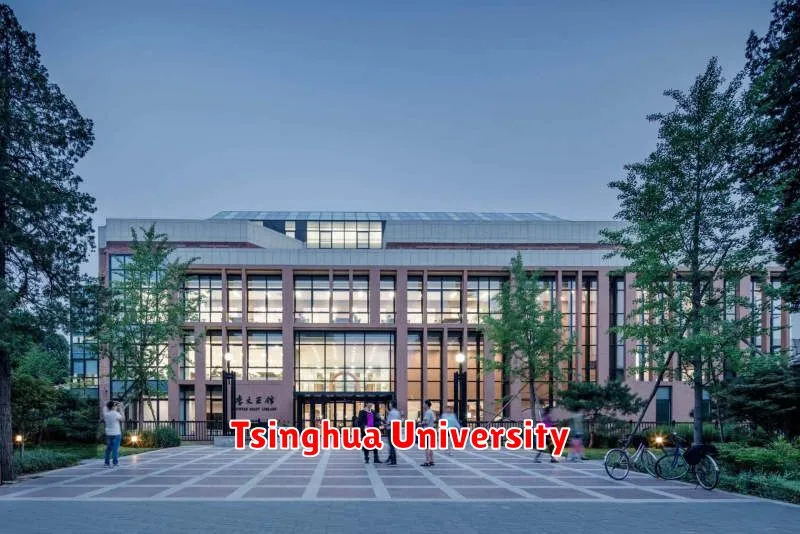
Tsinghua University is a leading research university located in Beijing, China. It is one of the most prestigious universities in China and is renowned for its academic excellence in a wide range of fields, including science, engineering, technology, and humanities. Established in 1911, Tsinghua has a long history of academic innovation and has played a significant role in the development of China’s education system.
Academics
Tsinghua University offers a comprehensive range of undergraduate and graduate programs across various disciplines. Some of the most notable programs include:
- Engineering: Tsinghua is particularly renowned for its engineering programs, ranking among the top universities globally in fields like aerospace engineering, computer science, and electrical engineering.
- Science: The university boasts strong departments in physics, chemistry, mathematics, and biology, contributing significantly to scientific research and innovation in China.
- Humanities and Social Sciences: Tsinghua’s programs in economics, law, history, and philosophy are highly regarded, fostering critical thinking and research in these fields.
Research
Tsinghua University is a hub of research and innovation, with a strong focus on cutting-edge research in various areas. The university boasts numerous research centers and institutes, dedicated to pushing the boundaries of knowledge and addressing global challenges. Some notable research areas include:
- Artificial intelligence: Tsinghua is a pioneer in AI research, contributing significantly to the development of AI technologies and applications.
- Biotechnology: The university conducts leading-edge research in areas like bioengineering, genomics, and drug discovery.
- Sustainability: Tsinghua is actively involved in research on renewable energy, environmental protection, and sustainable development.
Campus Life
Tsinghua University offers a vibrant and diverse campus experience. The university boasts beautiful campus grounds, modern facilities, and a strong sense of community. Students have access to a wide range of extracurricular activities, including sports, clubs, and student organizations. The university also hosts numerous cultural events and guest lectures, fostering intellectual stimulation and a dynamic campus environment.
Global Impact
Tsinghua University has a global presence, with strong partnerships and collaborations with universities and institutions around the world. The university actively participates in international research projects and promotes cultural exchange through various programs. Tsinghua’s graduates have made significant contributions to various fields, impacting society and shaping the global landscape.
Peking University
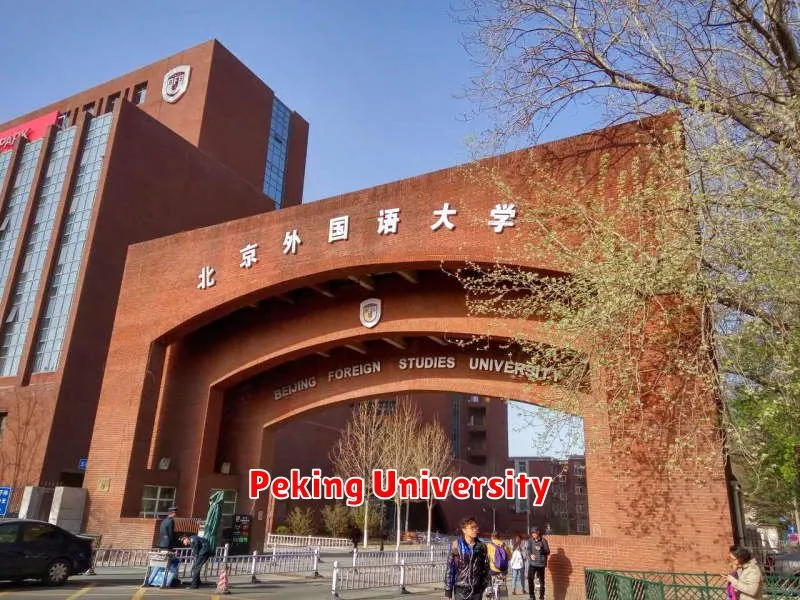
Peking University (PKU), officially known as the National Peking University, is a prestigious research university located in Beijing, China. Founded in 1898, it is one of the oldest and most renowned institutions of higher learning in China, and is widely considered to be the country’s top university.
History
PKU was founded as the Imperial University of Peking by the Qing dynasty in 1898. The university was initially modeled after Western universities, and its curriculum included a wide range of subjects, including the humanities, social sciences, and natural sciences. After the overthrow of the Qing dynasty in 1911, the university was renamed Peking University.
Throughout the 20th century, PKU played a major role in the development of Chinese higher education. The university was a center of intellectual and political ferment during the May Fourth Movement, and it was also a stronghold of resistance during the Japanese invasion of China. After the founding of the People’s Republic of China in 1949, PKU became a major center of socialist education.
Academics
PKU is a comprehensive university with a wide range of academic programs. It offers undergraduate and graduate degrees in a variety of fields, including the humanities, social sciences, natural sciences, engineering, medicine, and law. The university is particularly renowned for its programs in the humanities, social sciences, and law.
PKU is home to a number of world-renowned scholars and researchers. The university has a strong tradition of academic excellence, and its faculty has made significant contributions to a wide range of fields. PKU is also home to a number of research institutes and centers, which conduct cutting-edge research in a variety of areas.
Campus
The PKU campus is located in the Haidian District of Beijing. The campus is spread over a large area, and it includes a variety of buildings, including lecture halls, libraries, laboratories, and dormitories. The campus is also home to a number of parks and green spaces, which provide a tranquil setting for students and faculty.
PKU is a vibrant and active university with a strong sense of community. The university hosts a variety of events and activities throughout the year, including lectures, concerts, and sporting events. Students and faculty come from all over China and the world, creating a diverse and stimulating intellectual environment.
Legacy
PKU has played a significant role in the development of China, and it continues to be a leading center of education and research. The university has produced a large number of prominent alumni, including many leading scholars, politicians, and business leaders. PKU is a symbol of academic excellence and intellectual freedom, and it continues to be a source of pride for China.
Seoul National University
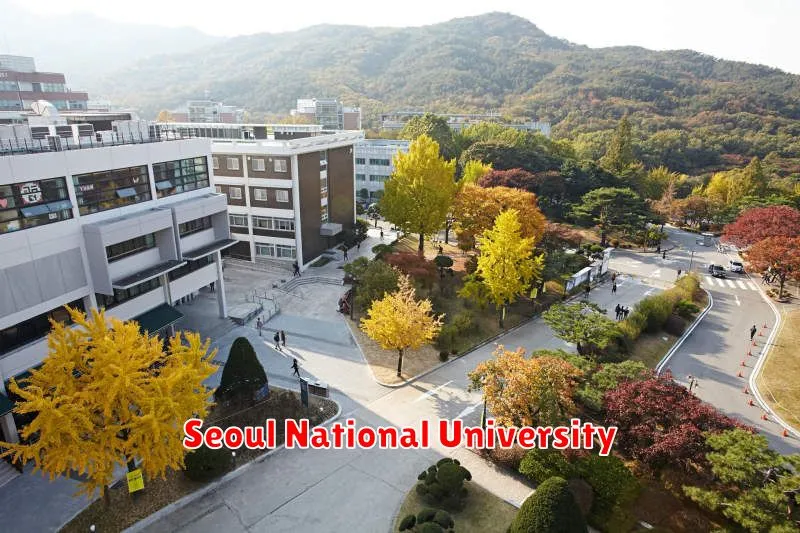
Seoul National University (SNU) is a public research university located in Seoul, South Korea. Founded in 1946, SNU is widely regarded as the most prestigious university in South Korea and is consistently ranked among the top universities in Asia and globally.
SNU is known for its strong academic programs across a wide range of disciplines, including the humanities, social sciences, natural sciences, engineering, medicine, and law. The university has a highly competitive admissions process, attracting some of the brightest minds in the country. It boasts a distinguished faculty, state-of-the-art facilities, and a vibrant research environment.
SNU has a beautiful and expansive campus located in the heart of Seoul. The campus is home to numerous academic buildings, libraries, museums, and student housing. It also features a large park area and numerous green spaces, providing a serene and inspiring atmosphere for students and faculty.
As a leading research university, SNU is actively engaged in cutting-edge research across a wide range of fields. The university has established strong partnerships with leading institutions worldwide and actively encourages international collaboration. SNU’s research endeavors contribute significantly to scientific advancements and societal progress.
SNU plays a crucial role in shaping the future of South Korea and beyond. Its graduates go on to make significant contributions to various sectors, including academia, government, business, and the arts. SNU is committed to fostering global citizens who are prepared to make a difference in the world.
Nanyang Technological University
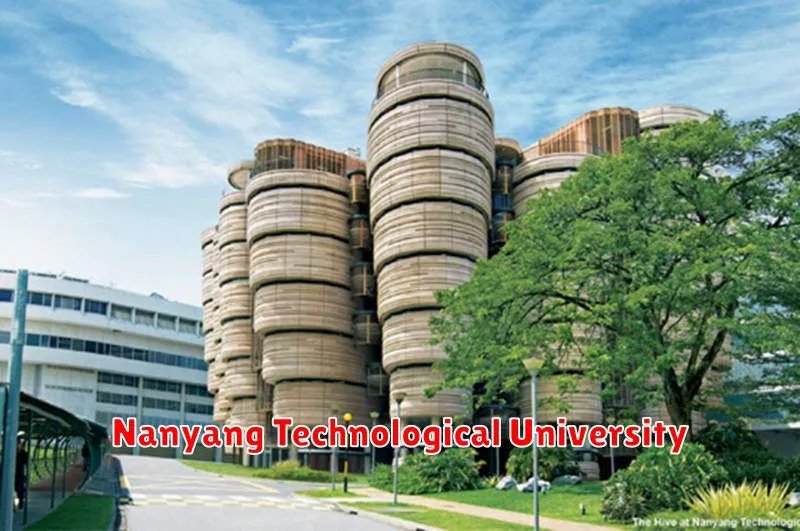
Nanyang Technological University (NTU) is a public research university located in Singapore. Founded in 1981, it is one of the top universities in the world, known for its strong focus on science, technology, engineering, and mathematics (STEM). NTU has a beautiful campus, boasting lush greenery and modern facilities, creating a conducive learning environment.
NTU offers a wide range of undergraduate and postgraduate programs across various disciplines. Its academic programs are internationally recognized, with a strong emphasis on practical skills and real-world applications. NTU is committed to fostering innovation and entrepreneurship, providing students with opportunities to engage in research, internships, and startup ventures.
NTU is home to world-class research centers and institutes, conducting groundbreaking research in areas such as biotechnology, materials science, artificial intelligence, and sustainability. The university collaborates with leading industries and research institutions worldwide, contributing to the advancement of knowledge and technological progress.
NTU has a vibrant campus life, with a wide range of student clubs and organizations. Students can participate in sports, cultural activities, and social initiatives. The university also provides extensive support services, including career guidance, health and wellness programs, and student accommodation.
Graduating from NTU opens doors to numerous opportunities, both locally and globally. NTU alumni are highly sought-after by top companies and organizations worldwide. With its strong academic reputation, cutting-edge research, and commitment to student development, NTU continues to be a leading university in Asia and beyond.
Indian Institute of Technology Delhi

The Indian Institute of Technology Delhi (IIT Delhi) is a public technical and research university located in New Delhi, India. It is one of the premier engineering institutions in India and is consistently ranked among the top universities in the world. IIT Delhi was established in 1961 and has since become a hub of excellence in science, technology, and engineering education and research. The institute offers a wide range of undergraduate and postgraduate programs in various disciplines, including engineering, science, humanities, and management. IIT Delhi is known for its rigorous academic standards, world-class faculty, and state-of-the-art infrastructure.
Academics
IIT Delhi is known for its high-quality education and research. The institute offers a wide range of undergraduate and postgraduate programs in various disciplines. The undergraduate programs include Bachelor of Technology (B.Tech.), Bachelor of Science (B.Sc.), and Bachelor of Architecture (B.Arch.). The postgraduate programs include Master of Technology (M.Tech.), Master of Science (M.Sc.), Master of Business Administration (MBA), and Doctoral programs (Ph.D.). IIT Delhi also offers a number of interdisciplinary programs, such as the joint degree program in engineering and management. The institute is home to several research centers and laboratories, which are involved in cutting-edge research in various fields.
Campus
IIT Delhi is located on a sprawling 320-acre campus in the Hauz Khas area of South Delhi. The campus is home to several academic buildings, hostels, research facilities, sports grounds, and a library. The campus is well-connected to the rest of the city by public transport. The campus is a vibrant and lively place, with a strong sense of community among students and faculty.
Rankings
IIT Delhi is consistently ranked among the top universities in India and the world. In the 2023 QS World University Rankings, IIT Delhi was ranked 174th in the world and 1st in India. The institute has also been ranked highly in other global rankings, such as the Times Higher Education World University Rankings and the Academic Ranking of World Universities (ARWU). The institute’s high rankings are a testament to its commitment to academic excellence and research.
Notable Alumni
IIT Delhi has produced a large number of notable alumni, who have gone on to achieve great success in various fields. Some of the notable alumni of IIT Delhi include:
- Vinod Khosla, co-founder of Sun Microsystems
- N. R. Narayana Murthy, co-founder of Infosys
- Rajeev Motwani, computer scientist and co-author of the book “Introduction to Algorithms”
- Kiran Mazumdar-Shaw, founder and chairperson of Biocon
- Sachin Bansal, co-founder of Flipkart
Chinese University of Hong Kong
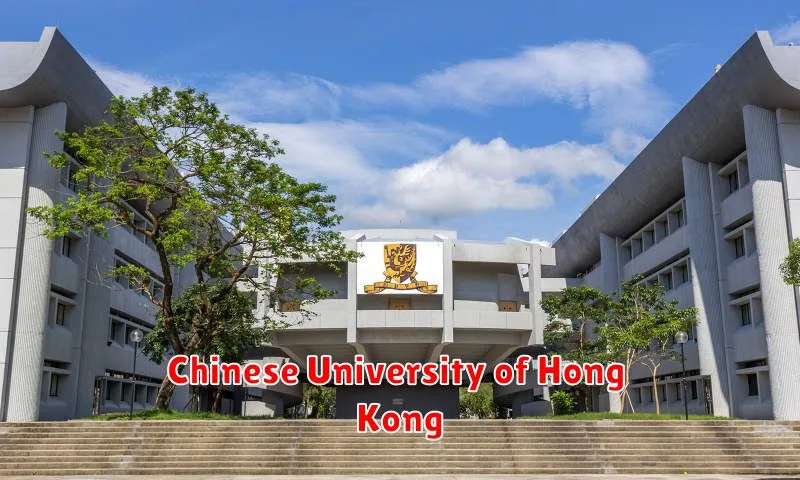
The Chinese University of Hong Kong (CUHK) is a public research university located in Shatin, New Territories, Hong Kong. Founded in 1963, it is one of the oldest and most prestigious universities in Hong Kong. CUHK is consistently ranked among the top universities in Asia and the world.
CUHK has a strong focus on research and offers a wide range of undergraduate and postgraduate programs. The university is known for its excellence in the fields of medicine, engineering, business, and the humanities. It is also home to a number of world-class research centers, including the Institute of Chinese Studies and the Center for Chinese Linguistics.
CUHK has a beautiful campus, which is set amidst rolling hills and green spaces. The campus features a number of architectural landmarks, including the University Library and the Chung Chi College Chapel. The university also has a vibrant student life, with a wide range of clubs and societies catering to diverse interests.
CUHK is committed to providing its students with a holistic education that prepares them for success in the 21st century. The university offers a range of student support services, including career counseling, academic advising, and mental health support. CUHK also has a strong alumni network, which connects graduates with employers and provides opportunities for professional development.
Kyoto University
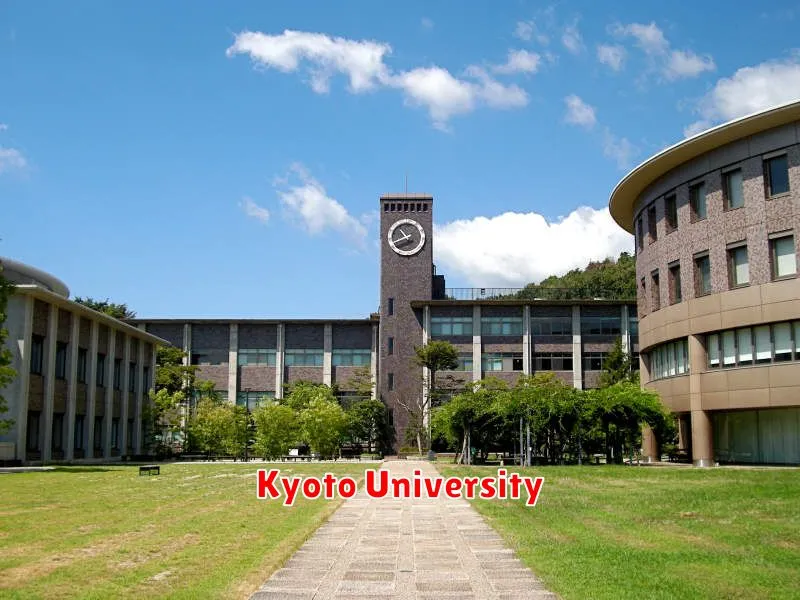
Kyoto University, located in Kyoto, Japan, is a prestigious public research university and one of the most prominent institutions of higher education in the country. Founded in 1897, it has a long history of academic excellence and has consistently ranked among the top universities in the world.
Academics
Kyoto University is renowned for its academic rigor and wide range of academic disciplines. It comprises 10 faculties, 18 graduate schools, and numerous research institutes. Some of its most prominent academic areas include:
- Medicine: Kyoto University Hospital is a leading medical facility and research center.
- Science: The university boasts world-class departments in physics, chemistry, biology, and mathematics.
- Engineering: Its engineering programs are highly regarded, particularly in areas like electronics, mechanical engineering, and materials science.
- Humanities and Social Sciences: The university has strong departments in history, literature, economics, and law.
Research
Kyoto University is a major research institution, actively engaged in cutting-edge research across various fields. It has produced numerous Nobel laureates and has been at the forefront of scientific breakthroughs. Its research facilities and infrastructure are among the best in Japan, supporting innovative research initiatives.
Campus
Kyoto University’s main campus is located in the northwestern part of Kyoto City. It covers a vast area and features a unique blend of traditional Japanese architecture and modern facilities. The campus boasts beautiful gardens, historic buildings, and a serene atmosphere conducive to learning and research.
Student Life
Kyoto University offers a vibrant student life, with numerous clubs, societies, and events. Students are encouraged to participate in extracurricular activities, fostering a sense of community and enriching their overall university experience. The university also has a strong international student community, welcoming students from all over the world.
Impact
As one of Japan’s most prestigious universities, Kyoto University has played a significant role in shaping the country’s intellectual and economic development. Its graduates have gone on to make notable contributions in various fields, including academia, government, industry, and the arts.
University of Malaya
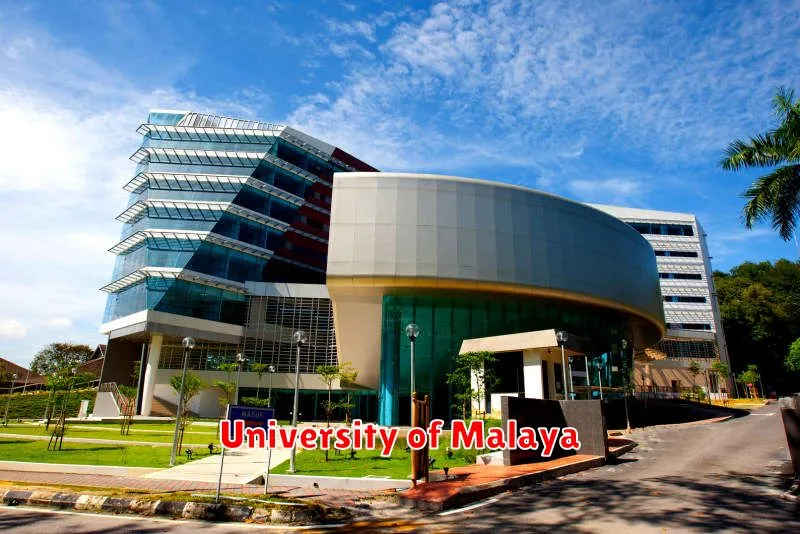
The University of Malaya (UM) is a public research university located in Kuala Lumpur, Malaysia. It is the oldest and most prestigious university in Malaysia, founded in 1949 as the University of Malaya, Singapore. It was officially established as the University of Malaya on October 1, 1962.
UM is a comprehensive university with a wide range of academic disciplines, including the arts, humanities, social sciences, sciences, engineering, medicine, law, and business. It is known for its strong academic programs, world-class research facilities, and diverse student body.
Academics
UM is home to 13 faculties and 14 research institutes. The university offers a wide range of undergraduate and postgraduate programs, including doctoral programs. It is known for its strong academic programs, especially in the fields of medicine, law, and engineering.
Research
UM is a leading research university in Malaysia, with a strong focus on research in various fields. It has a number of research centers and institutes, including the Institute of Advanced Studies, the Institute of Microelectronics, and the Institute of Biological Sciences.
Campus Life
The UM campus is located in a beautiful and peaceful setting, with lush greenery and modern facilities. It is home to a variety of student clubs and organizations, as well as a number of sports and recreational facilities.
Rankings
UM consistently ranks among the top universities in Malaysia and Southeast Asia. It is ranked among the top 200 universities in the world by the QS World University Rankings.

